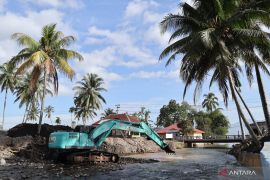"The State Audit Board (BPK) must dare to audit it thoroughly. The difference in data is too great, and this concerns the lives of many people," Suparji said.
According to Suparji, BPK audit results can be used by the Corruption Eradication Commission (KPK) as preliminary data if there are indications of fraud.
"The BPK and the KPK must coordinate with each other, moreover it has been seen from the beginning that there are differences in data, so it should be investigated more quickly," he said.
The gap in data about rice was revealed after BPS released the 2018 rice production surplus, which only reached 2.8 million tons, far below the Ministry of Agriculture`s data or calculations.
Based on the Ministry of Agriculture`s official website, this year`s rice surplus was to be 13.03 million tons.
The calculation is made in 2018 based upon the unhulled rice production of 80 million tons, or 46.5 million tons of rice equivalent, while the total national rice consumption is only 33.47 million tons.
A similar view was made by Jakarta State University`s (UNJ`s) political observer Ubedillah Badrun. He called the data mismatch reasonable, as will be seen if investigated.
All survey institutions of the government, according to Ubedillah, should coordinate with each other, not only on the matter of conducting the survey, but also on the proper methodology that can be used academically.
He explained that there are two possibilities if an agency has different data. The first is that there is a methodological error. The second possibility is that there is something triggered by certain interests behind the figure.
Reporting by Afut Syafril Nursyirwan
(T.A014/B/KR-BSR/A014) 23-10-2018 23:27:38
Reporter: Antara
Editor: Andi Abdussalam
Copyright © ANTARA 2018












